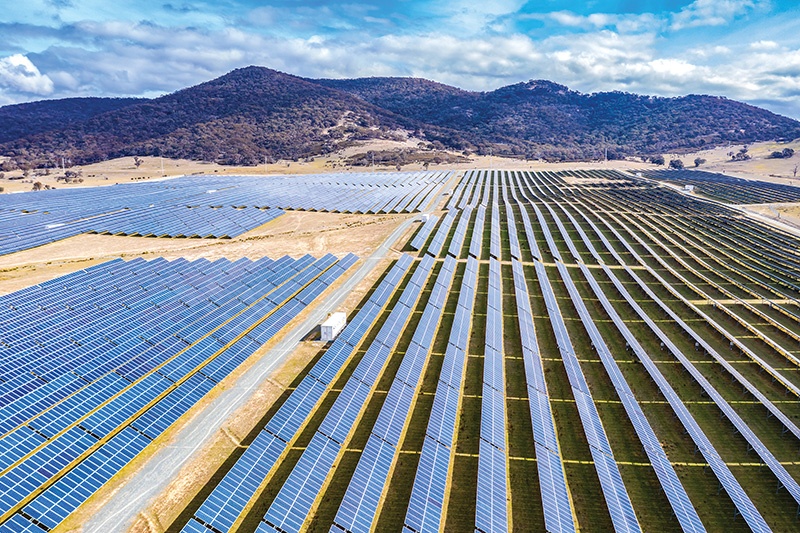2021 remains gap year for solar developers
 |
| Due to absence of updated feed-in tariff schemes, solar developers had to pause any further projects in 2021. Photo: Shutterstock |
In 2020, Tien Thinh Trading and Construction Services Co., Ltd. implemented dozens of solar projects in many southern provinces and cities, with total revenues of the company reaching around $430,000. However, this year the firm only implemented a few small-scale projects with total revenues shrinking to one-tenth lower.
“Many businesses are waiting for the new solar pricing policy,” said Trinh Ngoc Quyet Tien, director of the company.
Tien explained that the incentives for solar projects have expired, whereas state-run Electricity of Vietnam (EVN) stopped receiving requests for connection and signings of power purchase agreements from residents and businesses after the end of last year.
Under the prime minister’s Decision No.13/2020/QD-TTg on mechanisms to promote the development of solar power projects in Vietnam, the prices of each kilowatt-hour generated from ground-mounted, floating, and rooftop solar initiatives are 7.09, 7.69, and 8.38 US cents, respectively, but this policy also expired last year.
Up to now, the government has not yet issued further instructions on procedures for electricity purchases and sale contracts, as well as payments for purchased electricity from rooftop solar power systems.
The south-central province of Ninh Thuan People’s Committee said in a recent document that investors have worked day and night to complete projects, but some of them missed the deadline to enjoy the feed-in tariffs (FiT). Even now, some electricity has been generated and delivered to the grid, but EVN and investors could not calculate selling prices.
There have been many meetings between investors, EVN, and provinces during this year, but no positive movement has been made.
The FiT has had a great impact on equipment manufacturers and trading units, as well as developers and investors using solar power. Rooftop solar installations skyrocketed in Vietnam last year before the FiT deadline, with more than 9GWp of rooftop solar installed in the country. However, the hot development of solar projects caused an overload of supply.
Bui Van Tien, CEO at VATEC Consulting Co., Ltd., said during the Zoom meeting termed “Paving the way for green growth through buildings in Vietnam” hosted by Energy Box Vietnam last week, “After the boom, the solar market was almost frozen due to both the lack of a pricing policy and the pandemic situation. Electricity consumption in 2021 is also lower as factories reduced their capacities.”
However, Tien predicted that this situation would only last “for the short-term as Vietnam made a strong commitment at COP26 to net-zero emissions and policy development for the solar sector in the coming time.”
Hoang Tien Dung, director of the Department of Electricity and Renewable Energy under the Ministry of Industry and Trade admitted that an FiT for solar power was previously considered suitable to attract investment. “Technological progress also helps projects to be more efficient and calculate solar power price reductions while ensuring benefits for investors as well as electricity buyers,” Dung said.
In March, he stated that rooftop solar power could be traded at only 5.2-5.8 US cents per kWh, with these rates based on an assessment by foreign consultants on the changes to and development of renewable energy, as well as the price of equipment in Vietnam and around the world.
Meanwhile, foreign investors have used mergers and acquisitions to expand their renewable energy investment in Vietnam because of a lack of policy for solar power projects at the moment. All acquired projects are completed and received the FiT prices.
For instance, Banpu Power Plc this month announced that it has acquired Ha Tinh Solar Power JSC in a deal worth $23.9 million as part of its strategy for renewable power businesses across Asia-Pacific.
What the stars mean:
★ Poor ★ ★ Promising ★★★ Good ★★★★ Very good ★★★★★ Exceptional
Related Contents
Latest News
More News
- Bac Ai Pumped Storage Hydropower Plant to enter peak construction phase (January 27, 2026 | 08:00)
- ASEAN could scale up sustainable aviation fuel by 2050 (January 24, 2026 | 10:19)
- 64,000 hectares of sea allocated for offshore wind surveys (January 22, 2026 | 20:23)
- EVN secures financing for Quang Trach II LNG power plant (January 17, 2026 | 15:55)
- PC1 teams up with DENZAI on regional wind projects (January 16, 2026 | 21:18)
- Innovation and ESG practices drive green transition in the digital era (January 16, 2026 | 16:51)
- Bac Ai hydropower works stay on track despite holiday period (January 16, 2026 | 16:19)
- Fugro extends MoU with PTSC G&S to support offshore wind growth (January 14, 2026 | 15:59)
- Pacifico Energy starts commercial operations at Sunpro Wind Farm in Mekong Delta (January 12, 2026 | 14:01)
- Honda launches electric two-wheeler, expands charging infrastructure (January 12, 2026 | 14:00)

 Tag:
Tag:




















 Mobile Version
Mobile Version